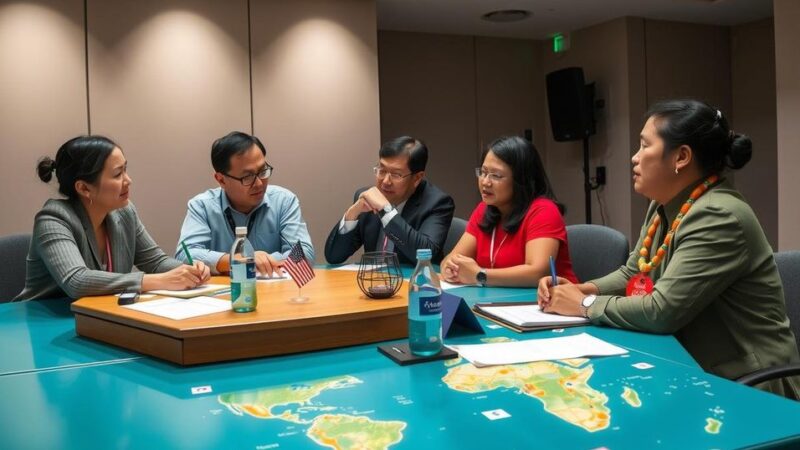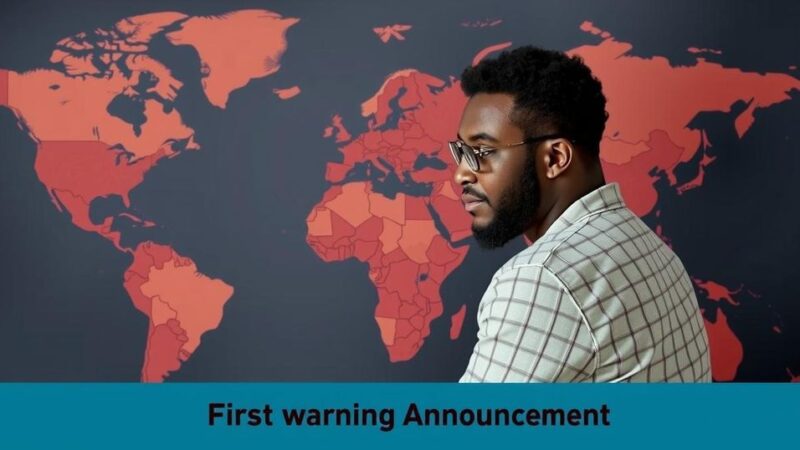The year 2024 is projected to be the hottest on record, highlighting the urgent need for effective climate action as countries grapple with severe weather events and insufficient commitments. Despite pledges made by developed nations, developing countries express dissatisfaction with climate financing. Legal actions are emerging as alternative means to address climate responsibility, while advancements in renewable energy present paths for cooperation and growth.
The year 2024 has established itself as a pivotal period in the ongoing climate crisis, characterized by alarming temperature records and extreme weather phenomena. The Copernicus Climate Change Service has projected that this year will likely be the hottest on record, indicating that the global average temperature may have exceeded the critical threshold of 1.5 degrees Celsius above pre-industrial levels, a significant marker established by the Paris Agreement. The need for urgent and effective climate action has never been more pressing, yet the global consensus appears fragmented as various nations grapple with their respective commitments and challenges.
Recent events, including devastating wildfires, heat waves, floods, and cyclones across different regions of the world, underscore the excessive costs of climate inaction. A study by Carbon Brief highlighted that 74 percent of extreme weather events analyzed were intensified or made more likely due to climate change. Teng Fei from Tsinghua University warns that worsening climate conditions signify a rise in both the frequency and severity of these extreme weather events. Despite growing acknowledgment of climate change’s impact, global emissions continue to rise uncurbed, raising concerns among experts worldwide.
The recent COP29 conference resulted in a contentious climate finance agreement wherein developed countries committed to providing at least $300 billion annually to assist developing nations by 2035. However, representatives from developing countries expressed significant disappointment, deeming the amount insufficient compared to the estimated $1.3 trillion needed for a successful transition to clean energy. The history of unfulfilled financial pledges by developed nations only fuels further skepticism regarding future commitments, especially in light of past promises that have yet to materialize.
Adding to this complex landscape, legal avenues are being explored by some nations to address the climate crisis. The International Court of Justice recently engaged in unprecedented hearings to clarify the legal responsibilities of countries towards climate change. These proceedings reflect the urgency felt by smaller nations most adversely affected by climate change, as they seek formal recognition of their plight and demand accountability from larger emitters.
Furthermore, experts emphasize the role of international cooperation to reduce renewable energy costs, as highlighted by the notable declines in technology expenses over the last decade. Studies indicate that collaborative efforts, particularly in developing regions, can significantly enhance the use of renewable energy and contribute to economic growth. China’s investments in renewable energy offer a successful model, showcasing how climate action aligns with economic development.
In summary, the path ahead in addressing climate change is fraught with challenges, yet prospects for effective action do exist. It remains vital for nations to recognize the interconnectedness of environmental health and economic well-being, thus fostering collaboration aimed at achieving sustainable progress. The willingness to adapt and find innovative solutions will prove essential for navigating this pressing global crisis.
The article explores the escalating realities of climate change as evidenced by record temperatures and extreme weather events in 2024. It reflects on the implications of the Paris Agreement and elaborates on current climate finance dynamics, emphasizing the stark contrasts between the pledges of developed nations and the expectations of developing nations. Legal and cooperative strategies to mitigate climate impacts are also discussed, alongside the role of renewable energy transitions in fostering economic growth. Expert insights highlight the interconnected challenges faced in addressing climate change, showcasing concern over political consensus and obligations under international agreements.
The presented analysis underscores the critical urgency for unified global action against climate change as 2024 witnesses unprecedented temperature levels and destructive weather patterns. The inadequacy of climate financial commitments has incited discontent among developing nations. Legal strategies emerging from nations most affected by climate change highlight the growing demand for accountability from major contributors to carbon emissions. Nonetheless, embracing renewable energy and fostering international cooperation can pave the way toward sustainable development and climate resilience.
Original Source: www.chinadailyasia.com







